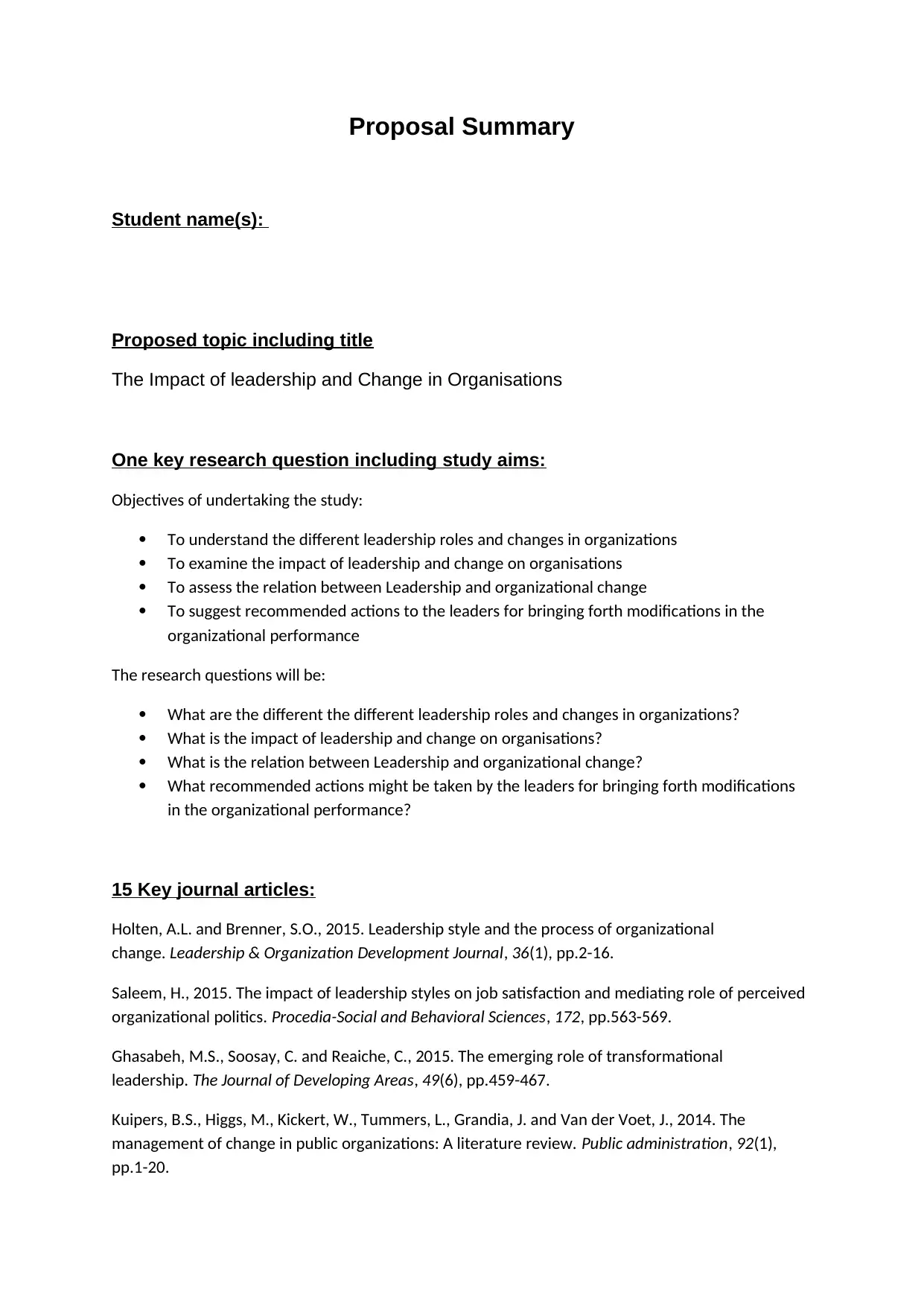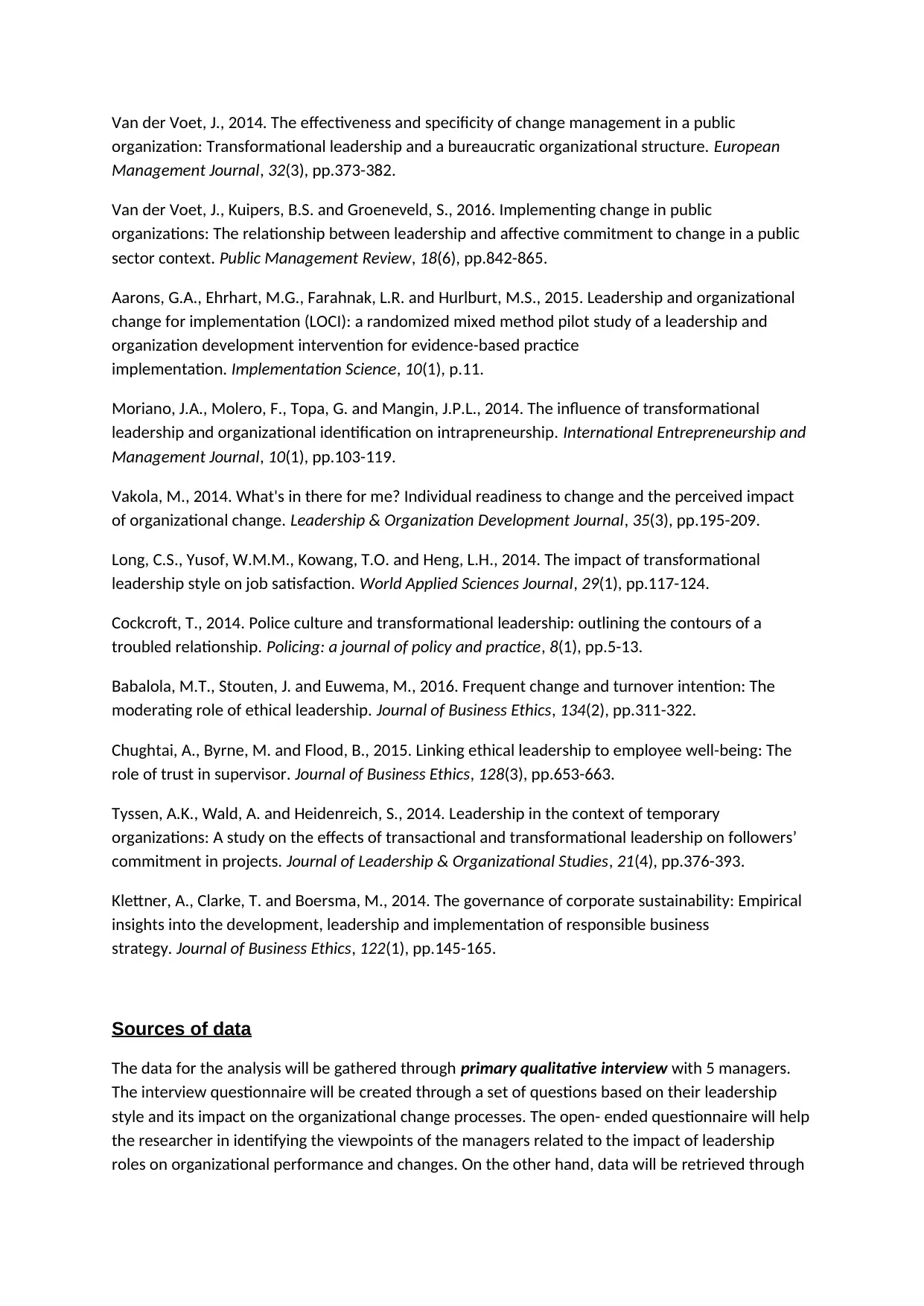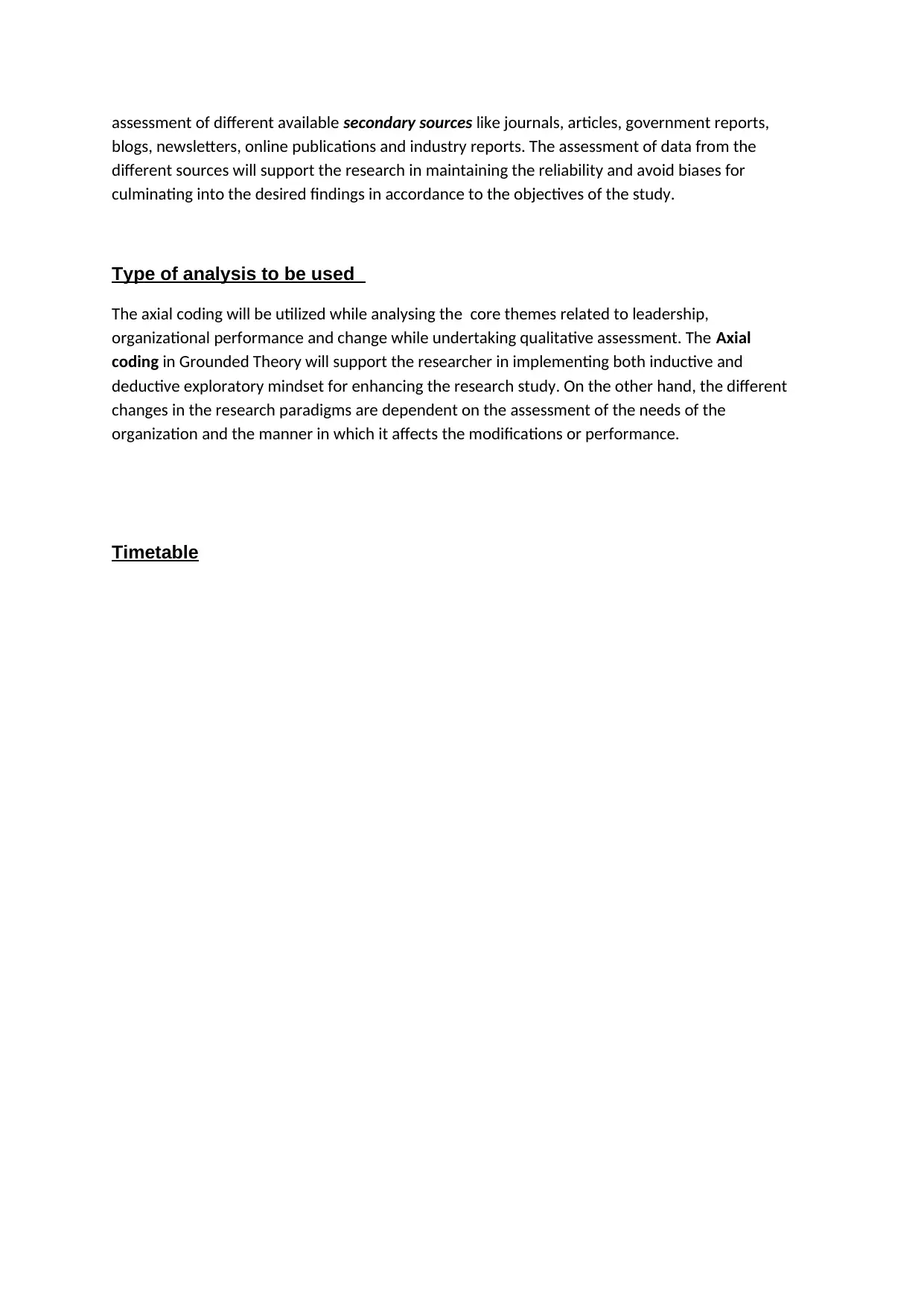This study aims to understand the different leadership roles and changes in organizations, examine the impact of leadership and change on organizations, assess the relation between leadership and organizational change, and suggest recommended actions to leaders for bringing forth modifications in organizational performance. The research questions include the different leadership roles and changes in organizations, the impact of leadership and change on organizations, the relation between leadership and organizational change, and recommended actions for organizational performance modifications. The study will analyze 15 key journal articles and gather data through primary qualitative interviews with managers and secondary sources such as journals, articles, and reports.
![[object Object]](/_next/static/media/star-bottom.7253800d.svg)
![[object Object]](/_next/static/media/star-bottom.7253800d.svg)


